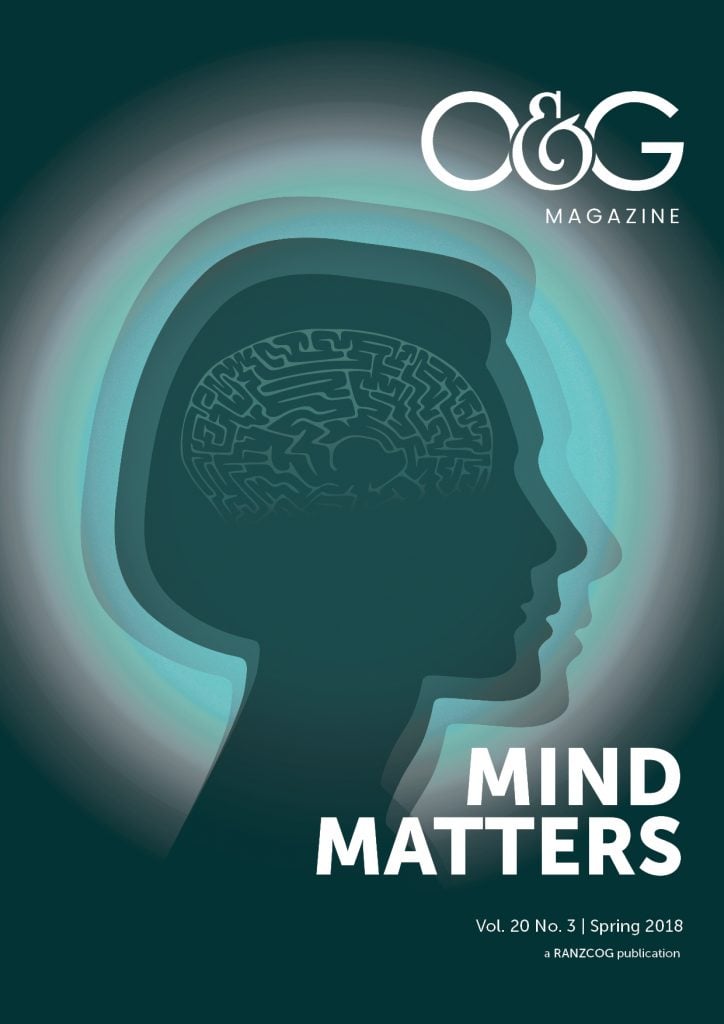The most recent mental health services report from the Australian Institute of Health and Welfare estimates that four million people in Australia experienced a common mental disorder in 2015.1 Similarly, in the 2017–18 New Zealand Health Survey, 7.6 per cent of respondents reported experiencing psychological distress in the previous four weeks.2 With such a high prevalence of psychological distress and mental illness, it is not surprising that mental health issues play an increasingly well-recognised role in women’s health.
The interaction between mental illness and pregnancy is well known and is covered extensively in this issue of O&G Magazine. Topics range from the emergence of perinatal mental health as a subspecialty within psychology and psychiatry, and psychotic illness and antidepressant use in pregnancy, to post-traumatic stress disorder in childbirth and the rare, but tragic, phenomenon of infanticide. There is a comprehensive article on postnatal depression, including screening and multidisciplinary approaches to treatment, and an article on the management of acute postpartum psychosis. Vijay Roach provides a personal account of his own family’s experience of postnatal depression and its professional and personal impact on him, including his support of the Gidget Foundation. In 2017, the Australian Government mandated that mental health screening should become an integral part of routine antenatal care, and has provided a new MBS item number for an optional postnatal consultation focused on mental health, substance abuse and domestic violence.
Articles with a gynaecological focus include those on eating disorders, the psychological aspects of pelvic pain and how the menopause can affect mental health. Premenstrual psychological changes are addressed in an interesting article by Snellen et al, which describes the historical, diagnostic and therapeutic difficulties of a complaint, which is common, but at times, can appear difficult to define explicitly. Other articles explore personality disorders in women’s health and offer a valuable practical perspective on breaking bad news.
With the high prevalence of mental illness and psychological distress reported in Australia and New Zealand, many doctors will, themselves, experience mental health problems at some time in their career. RANZCOG, the general medical profession, indemnity providers and regulatory agencies, are increasingly taking steps to help doctors improve their own mental health and that of their colleagues. With suicide by doctors being reported more often in the media, I would implore all of you to read the article on mental health in medical practitioners and to note the supports offered by RANZCOG and other organisations. We cannot expect that we can provide the best care for our patients if we don’t look after our own mental health and the welfare of our colleagues.






Leave a Reply